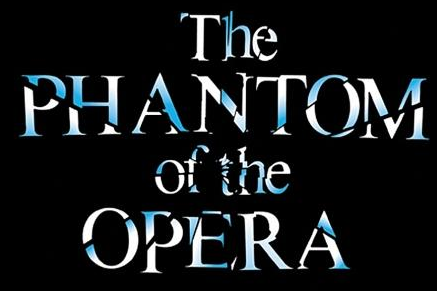The Phantom of the Opera: A Review

November 29, 2016
The Phantom of the Opera is arguably the most well-known and loved musical in the world. It’s the longest-running show in Broadway history, as well as the most successful in terms of ticket sales. Not everyone can go to New York to witness the spectacle in real life, so people often opt to watch Joel Schumacher’s 2004 film based on it. But does it even compare to the stage version? Is it worth the two-hour and twenty-six minutes out of your day to watch it?
The story is famed: in 1870, the Paris Opera House is bought by new management. Initially, they are unfazed by the mysterious sabotage caused by the notorious “Opera Ghost”, but when their prima donna storms out because of a set malfunction, they are forced to find a replacement. Sixteen-year-old Christine Daae (Emmy Rossum) is told to sing the part, despite only being a chorus girl. She is rumored to be taking lessons from a mysterious teacher, and performs the soprano’s part. She is obsessed with the thought of her “Angel of Music” guiding her, although her best friend, the new patron of the opera, Raoul (Patrick Wilson), insists that it is just a story. In her dressing room, a mysterious man (Gerard Butler) appears and takes her to the vaults of the opera house, commanding her to help him compose his music. The original prima donna (Minnie Driver) returns and demands to be returned to her star role. The managers agree, but the next show is ruined by the Phantom. Christine becomes paranoid, knowing he only wants her. Raoul comforts her, and they become engaged in secret, fearing the Phantom’s obsession. After a three-month disappearance, he returns with an opera he’s written himself, demanding it be performed, with Christine and himself in the lead roles. Raoul devises a plan to trap him, and the police show up to assist. The Phantom kidnaps Christine in the middle of the performance, prompting an epic showdown, and forcing Christine to choose her path. It’s a story of obsession and genius, as well as a classic ghost story.
The most striking thing about this movie is the cinematography. Schumacher isn’t afraid to show the environment, and it pays off. The camera moves to show everything that goes on in the opera house, without it being distracting. If one pays attention, all the dirty behind-the-scenes secrets of the opera can be seen: drinking and flirtation are all over the place. The Masquerade and graveyard scenes are the prettiest in the entire movie; the titular song and beginning scene will give you chills. Cutscenes often interrupt the story to show Raoul’s life in 1919. Without spoiling anything, all that can be said is that they’re very well-placed along the storyline to add closure, and the choice to do them in black and white was a great one.
The acting is interesting. When production started, Emmy Rossum was only sixteen, playing the part of one of the most-loved characters by Broadway fans. Her emotion is visible but still refined. When she cries, it’s never too much. Patrick Wilson, while a decent singer, doesn’t give Raoul much of a personality; he’s bland, and doesn’t give the viewer much to root for, despite being the romantic lead. Gerard Butler was the only one of the cast not to be trained in singing, but that works in his favor. The Phantom’s voice is rough and mysterious, matching his personality. Plus, he’s just cool. The way he slings his cape around to signify that a job is done is a little overkill, but it adds to the grandiosity of his character. It’s cliche, but it fits him well. Minnie Driver’s Carlotta is corny, but again, it works. The prima donna is a textbook brat. For such a dark story, she’s an effective comic relief. The makeup and costumes are also eye-catching and intriguing.
The biggest problems are the production and writing. The songs were recorded in a studio before filming, and that creates an obvious sound difference between the sung and spoken words. When the actors are lip-syncing onscreen, their mouths sometimes don’t look like they should while holding certain notes. The Phantom is portrayed as a musical savant onstage, but his genius is lost on screen, making his obsession with Christine appear more creepy than it already is. He’s supposed to be a sympathetic character, and the filmmakers try to evoke that by showing a flashback of his first coming to the opera house, but the half-hearted attempt at pathos falls flat. The romance between Raoul and Christine seems forced as well, and rushed. A lot happens during the climax in quick succession, and the audience can easily lose focus.
Is the movie as remarkable as the stage version? No. Is it an adequate substitute? Absolutely. It’s faithful enough to the source material to please Broadway fans, and a decent enough story for casual movie buffs to watch on a Saturday night. Produced by Andrew Lloyd Webber, who wrote the original 1986 musical, this movie is rated PG-13 for brief violent images.











